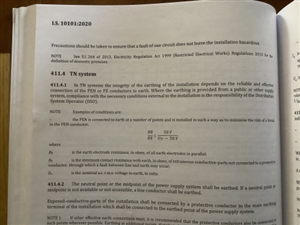
Perhaps you can shed some light on this condition for TNCS systems in the Irish Rules. I can only see that as RE decreases RB becomes more onerous but to be honest I am not really getting the essence.
We're about to take you to the IET registration website. Don't worry though, you'll be sent straight back to the community after completing the registration.
Continue to the IET registration site